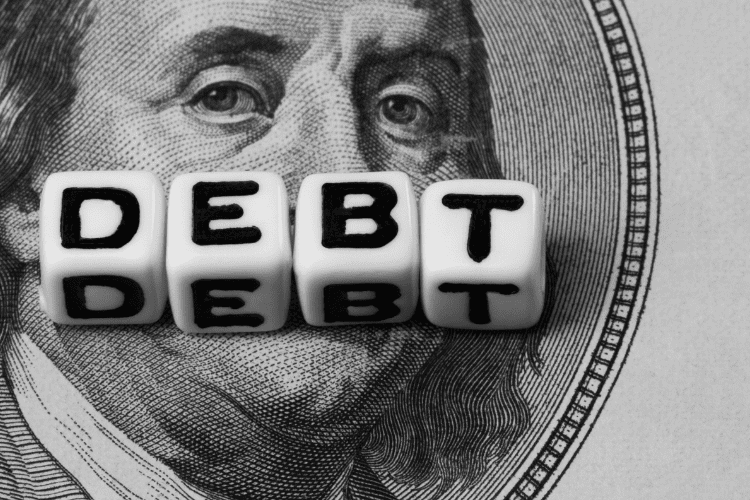Is All Debt Bad?

Ask most people if all debt is bad; the answer is probably yes. To many people, that’s a no-brainer. What could be good about debt? Too much of it can throw your entire life into a whirlwind and cause you to lose everything.
There are so many ways debt can negatively impact your life. Debt can cause you to spend more money than you actually have. It can also keep you from reaching those financial goals you’ve been dreaming about, like owning a home. It can keep you up at all hours of the night and even cost you serious medical problems. Last and never least, it can cost you your relationship and deplete your credit score.
Let’s face it, too much debt can leave strong repercussions; this is true. But the wrong type of debt is even worse — it can cause more harm than good. Rather than putting all debt in the same boat, it may be time to look at the type of debt you’re creating because all debt is not created equal.
Types of Debt
Debt can have three classifications: good, bad, and debt that’s somewhere in between. Let’s look at all three to determine how bad our debt is.
Good Debt
Some people may find it hard to believe there’s even such a thing as good debt, but there is. Good debt is considered “good” because it helps you to build your net worth. This means it helps you improve your financial situation, usually for the long term. Here are some examples of good debt.
Education: The general rule is the more education you have, the more earning potential you can acquire. Education is key for certain career paths. However, it’s important to know what it is you’re aiming for in your career so that you won’t overspend on your education. For instance, many people go to school for four or more years beyond high school and spend tens of thousands of dollars to spend their lives doing nothing associated with the degree(s) they earned. That doesn’t really matter if they end up landing a job that causes them to thrive and be able to pay off that student debt. But it could end up just the opposite. Rather than spend thousands of dollars to get a degree in something, be more intentional about where you want to go in life so that your education aligns with it. If acquiring a certification could do that, you may want to opt out of all that student loan debt.
Starting a business: Initially, you may have to take out a business loan to start your business. Creating any type of business is risky, and borrowing money to get it started compounds the risk. The risk always pays off when the business venture proves successful. Don’t take this type of risk unless you’re serious about putting in the work that’s necessary to make it work.
Buying a home: Owning your own home has its benefits. It comes with tax benefits, and you earn equity as you go. Equity in a home gives you access to cash when you need it and is a great resource for improving your home. Should you ever need to sell your home down the road, there’s also the potential to sell it at a profit.
Bad Debt
In contrast to good debt, there is bad debt. Bad debt does the opposite of good debt. Where good debt has the potential to build up your net worth, bad debt is something that loses value the minute you purchase it. Here are examples of bad debt.
Auto loan: While many of us would consider a vehicle a necessity to get from point A to B, its value has already depreciated by the time it leaves the lot. Even when you get a loan with low or no interest, the value has depreciated, so you’ve taken a financial hit that adds nothing to your net worth.
Credit card usage: If your credit card is carrying a balance from month to month, consider it bad debt. While credit cards may be a convenient way to make purchases, unless you’re paying off what you bought soon after, so there’s a $0 balance, it’s costing you additional money. The average credit card has a percentage rate of at least 16%. That means you’re paying at least 16% each month on whatever the balance is. You end up paying more than the item(s) you purchased even cost.
Payday loans: The interest rate on a payday loan can be as high as 700%, depending on where you live. There could also be additional fees on top of that. If you believe paying 16% interest is bad, I don’t need to say more about this.
Debt Somewhere In Between
Some who are buried in debt and trying to see their way out may pursue avenues that some may squirm about: borrowing to pay off debt. While a debt consolidation loan is another form of debt, it allows someone trying to free themselves from debt a way out over time. Typically, debt consolidation loans have a lower interest rate than most credit cards, making them easier to pay off. The key to debt consolidation being a good debt is that you don’t take on any new debt.
How To Keep Good Debt From Becoming Bad Debt
There’s good debt, bad debt, and then debt that’s somewhere in between. Leave it to the average Joe, and they’ll say that debt is debt — and this is true because even good debt can become bad debt. Important to remember about any debt is that it must be managed responsibly. Even a good debt can become the monster that haunts you at night if not paid on time.
Evaluate your situation to ensure you’re paying all your debt on time, so it doesn’t become out of control and end up with a collection agency or charged off on your credit report. When this happens, it lowers your credit score and makes your life a nightmare.
The Bottom Line
While all debt is not bad, it is still a debt, and it’s up to you to manage it appropriately — that means paying your monthly payments on time. The best way to do that is to maintain a budget and track your spending regularly. Doing this will keep you in sync with managing your money to acquire the things you desire.
Read More:










